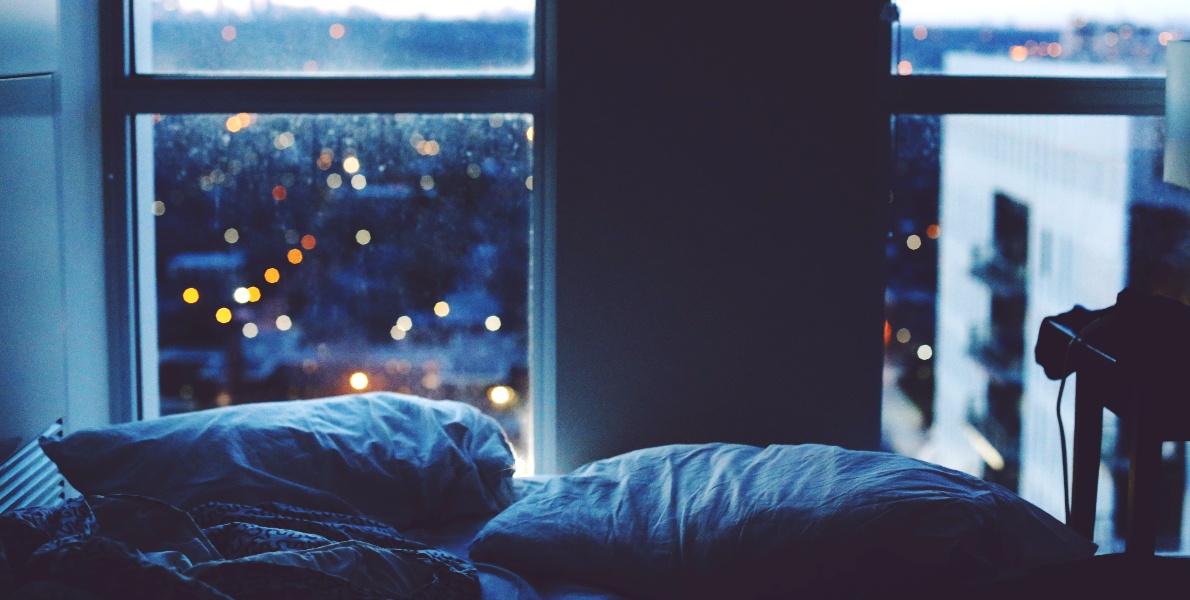The weekend is finally here.
For two weeks you have tossed and turned at night when you try to go to sleep.
It is Saturday morning, and you decide there is no hurry to get out of bed.
Surely a few extra hours under the covers will fix whatever ails you.
Adults need seven to nine hours of quality sleep each night.
Lack of good sleep affects all areas of our lives.
A recent study by the American Diabetes Association noted the relationship between bad sleep patterns and poor health outcomes.
In the study, each hour of poor sleep raised the risk for developing obesity, high blood pressure, and other health outcomes by 27 percent.
📎 Reasons Sleep Schedules Get Out of Whack
📎 Five Ways to Fix a Bad Sleeping Pattern
📎 What to Do if You Still Can’t Sleep
Reasons Sleep Schedules Get Out of Whack
Catching up on missed sleep is a good way to fix a bad sleeping pattern, right?
In reality, a weekend in bed may be the worst thing you can do to get your sleep back on track.
Our bodies follow a particular habit that determines how and when we sleep.
Called circadian rhythms, these patterns can be thrown off when our schedules get thrown off.
The result is a bad sleeping pattern that can affect every aspect of your life, including your physical and mental health.
Your circadian rhythm tells your body when you are hungry, tired, and when it is time to be up and about.
The good news is that your circadian rhythm can be altered and set right.
Before your sleep patterns can be fixed, you have to understand how the sleep schedule can get out of whack in the first place.
Caffeine is a stimulant and one of America’s favorite habits.
Excessive caffeine consumption, especially late in the day, alters your body’s rhythms and tricks you into thinking it is time to be up and energetic.
The best advice is to stop the caffeine several hours before you turn in for the night.
Turn off your electronics.
Blue light, the light that your favorite device emits from the screen, has a negative effect on your internal biological rhythms.
If you typically fall asleep watching videos on Tiktok, it’s time to put the phone down before you get into your nightly sleeping routine.
Shift work may be the norm for your occupation, but it can have a negative effect on your ability to get a good night’s sleep.
One of the best ways to improve your bad sleeping patterns is to stick to a rigid sleep and wake schedule.
Shift workers often find insomnia a side effect of the job.
Nicotine is a stimulant. Smoking a cigarette or puffing on a vape pen too close to bedtime can stir your body up into a frenzy.
A Canadian health study demonstrated the relationship between tobacco use and poor sleeping.
One-third of the study participants did not get the recommended amount of sleep.
Exposure to nicotine reportedly caused trouble falling asleep, difficulty staying asleep, and increased sleeping problems overall.
Exercise is essential for good health.
In fact, doctors recommend a daily exercise habit to improve your sleep.
Working out too close to bedtime, however, can have the opposite effect.
Five Ways to Fix a Bad Sleeping Pattern
The good news is that there are a number of easy steps you can take to break bad sleeping habits and get the best rest possible.
The key to any of these tips is to give it time to reset your sleeping rhythms.
Turn off the screen.
Put down your phone or laptop and turn off the television at least an hour before you want to go to sleep.
Start a nightly ritual.
Plan out and strictly follow a nightly sleeping plan.
This may include a few relaxing yoga moves, lounging in a dark room, reading a book, and so forth.
Make sure you stick to the same ritual each night.
Over time, your routine will help prevent sleeping issues.
Stick to your sleep schedule.
Establish a regular time to wake up every morning and to go to bed each night.
If at all possible, do not deviate from this schedule, even on weekends.
The result will be resetting your internal clock.
Have patience, however.
Resetting your circadian rhythms takes time.
Stop taking naps throughout the day.
Even if you are sleepy throughout the day, try to skip taking naps.
Sleeping too long during the day will further wreck your sleep schedule.
The only exception to the rule is if you integrate a brief 20-minute long nap into your regular routine.
Napping any longer will cause you to slip into a deeper sleep cycle.
Lay off the snacks and the booze.
As tempting as it may be, drinking alcohol before bed will not fix your sleeping issues.
A glass of wine may help you feel drowsy, but it can disrupt sleep later on.
The same can be said for eating too close to bedtime.
Try to stop eating two or three hours before you want to sleep.
Eating causes your body to fire up your digestive system, rather than relaxing and getting ready to slip into a deep sleep.
What to Do if You Still Can’t Sleep
Even the best sleeping habits cannot guarantee that you will never suffer a bad night’s sleep.
Here are a few tips for getting back to sleep on the occasional rough night.
Get out of bed.
If you are having trouble staying asleep, don’t stay in bed.
You might reinforce bad habits and create new issues.
Instead, get out of bed and do something to relax until you feel drowsy enough to fall asleep.
Steer clear of sleeping medications.
It might be tempting to rush to the drug store for a sleep aid, but taking sleeping medications can have a negative effect on your overall health.
At best, they are a temporary solution that can lead to insomnia later on.
Speak with your doctor.
If you are faced with long-term sleeping problems that are not solved by these tips and solutions, it may be time to speak with your doctor about medical interventions to help you get a good night’s sleep.





